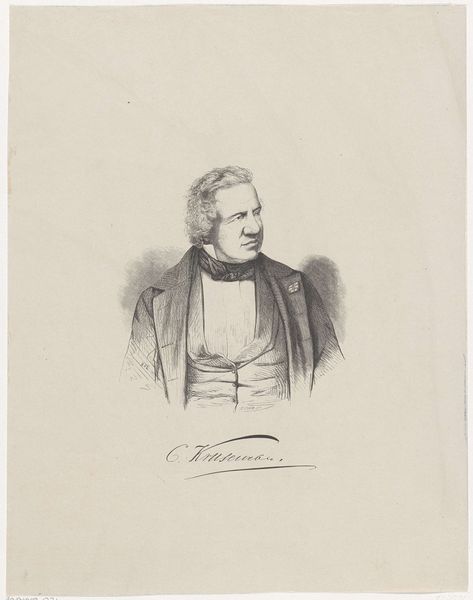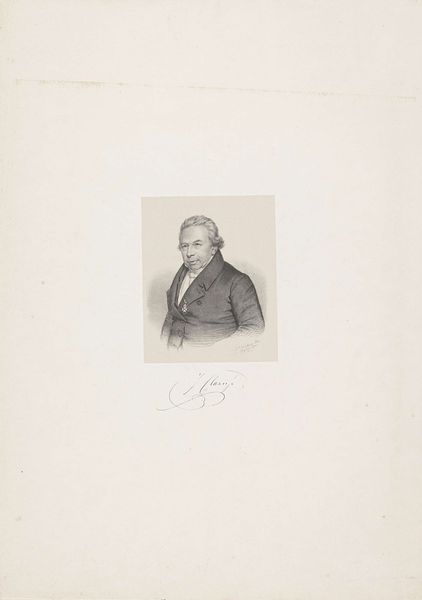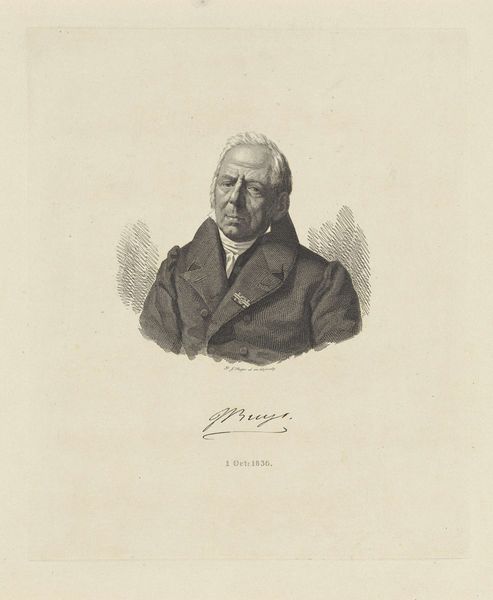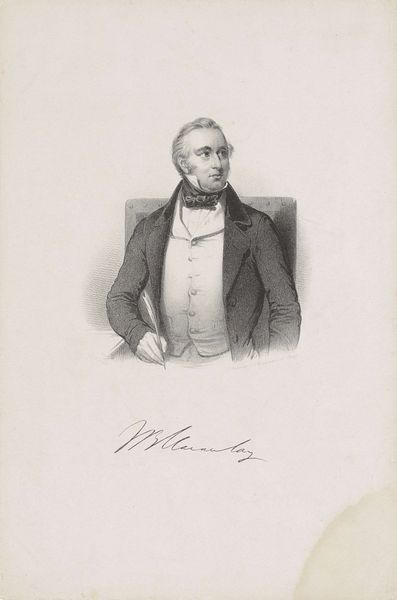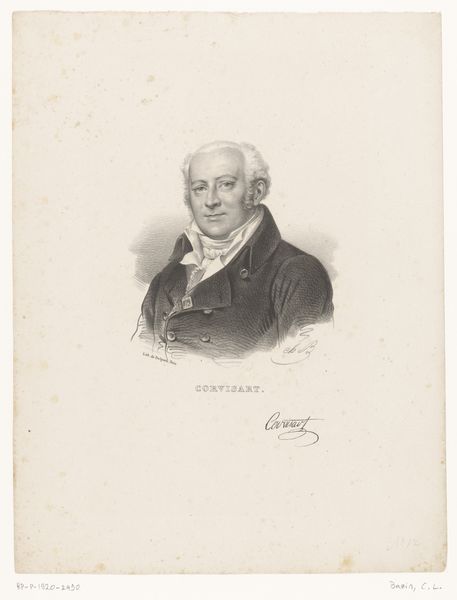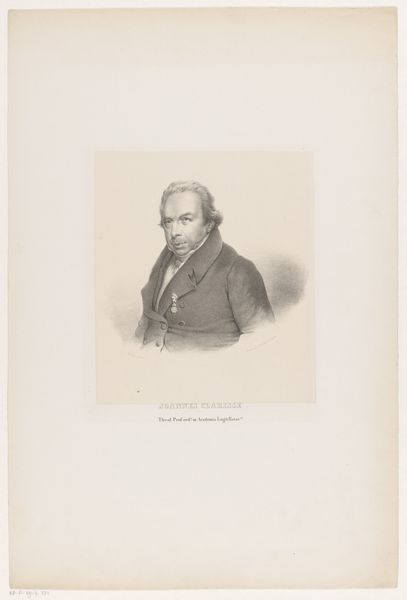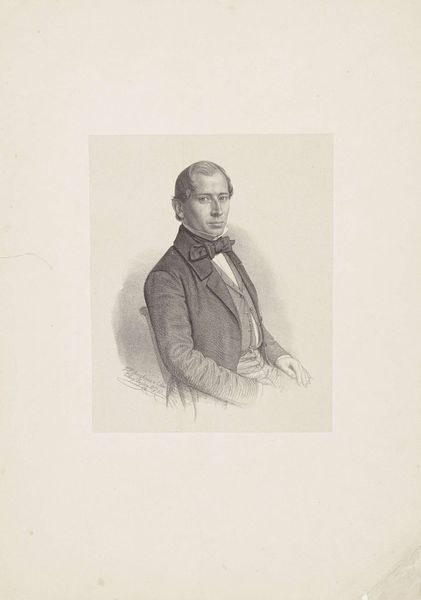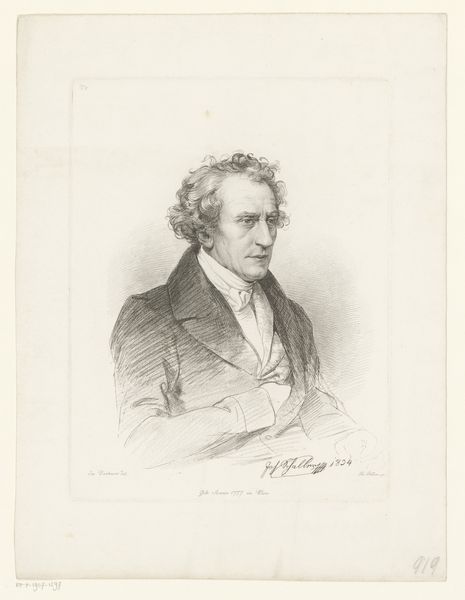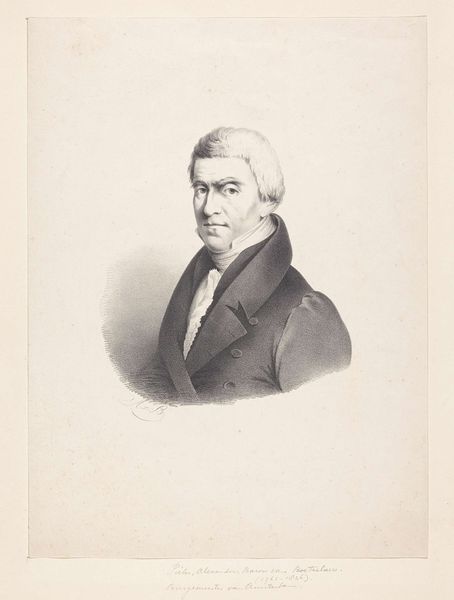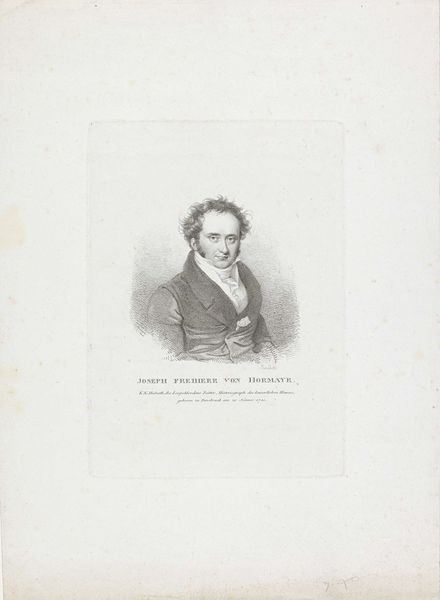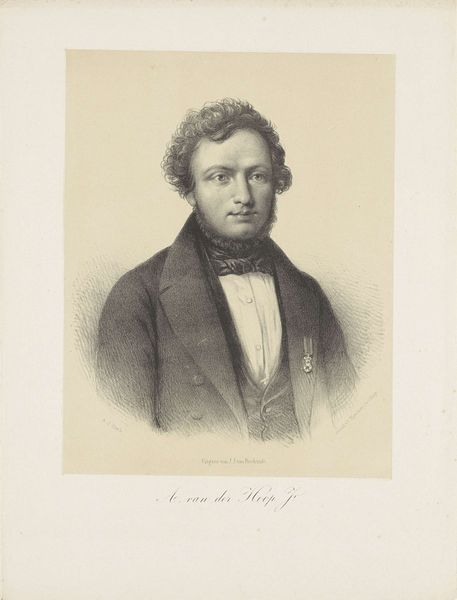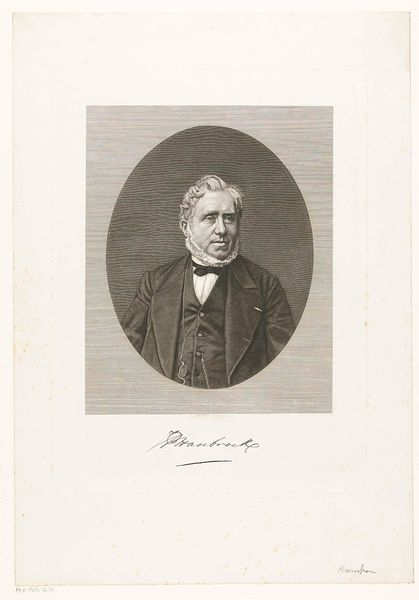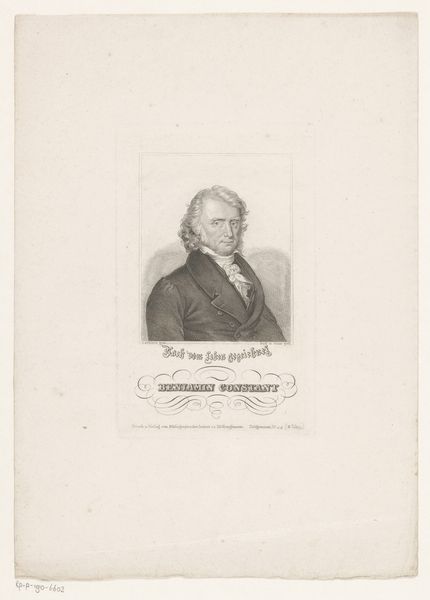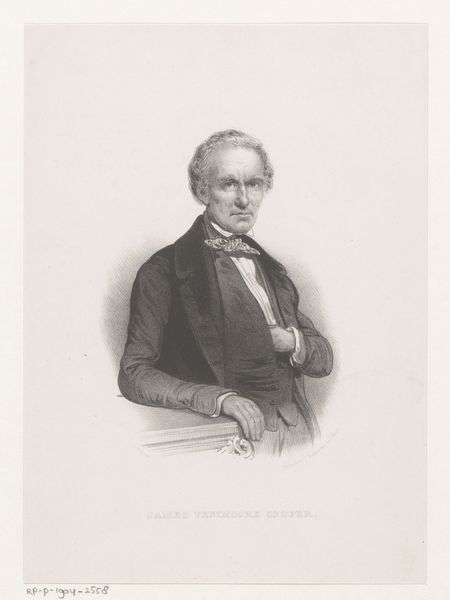
drawing, graphite
#
portrait
#
drawing
#
caricature
#
pencil drawing
#
graphite
Dimensions: height 304 mm, width 243 mm
Copyright: Rijks Museum: Open Domain
Willem Hendrik Stam created this portrait of Cornelis Kruseman using the technique of etching. The lines you see weren't drawn directly, but bitten into a metal plate with acid. The depth of these lines determines how much ink they hold, and thus the darkness of the printed mark. This indirect method allows for incredibly fine detail, which Stam uses to capture the texture of Kruseman's hair and clothing. Etching was particularly well-suited to reproduction, enabling the relatively quick production of images that could be distributed widely. Consider the social impact of this technology, allowing portraits like this to circulate beyond the elite circles who could afford painted likenesses. It democratized image-making, bringing art and information to a broader public and changing the very nature of portraiture. Ultimately, understanding the ‘how’ of this image – the etching process and its social context – gives us a much richer appreciation for its cultural significance.
Comments
No comments
Be the first to comment and join the conversation on the ultimate creative platform.
